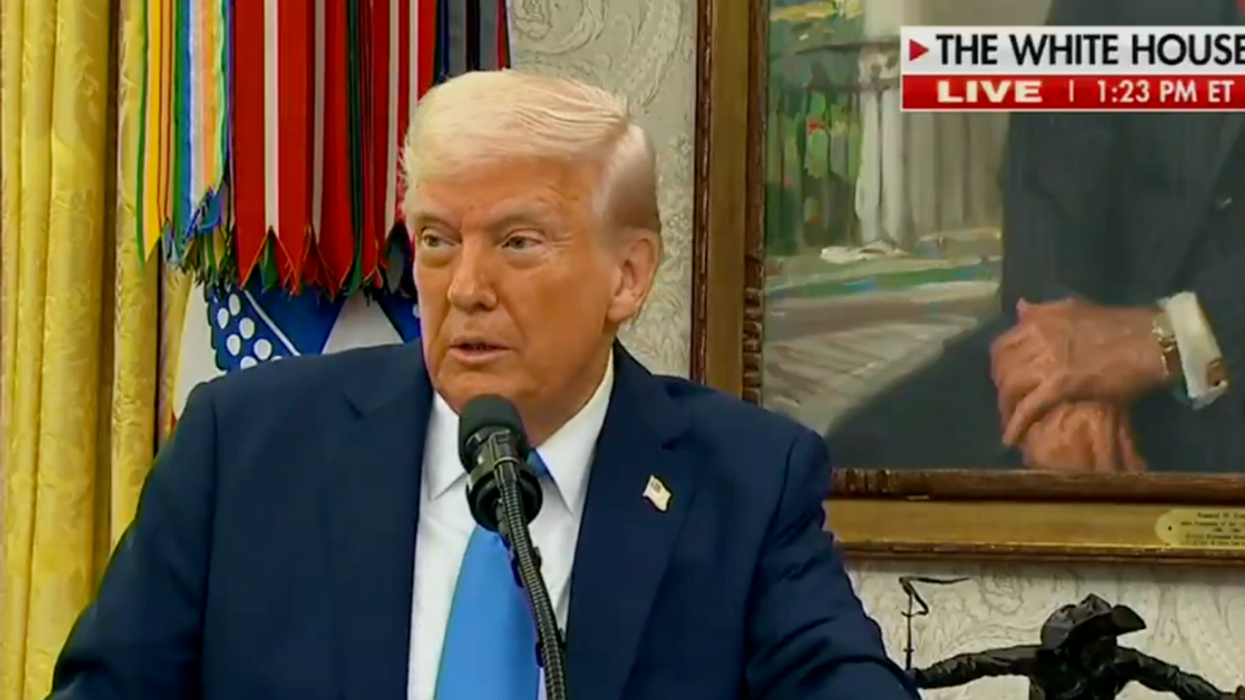Transportation Secretary Pete Buttigieg took Pennsylvania Republican Representative Scott Perry to task during a House Transportation Committee hearing on Thursday for making several false claims about electric vehicles.
Perry used part of his questioning time to criticize the Biden administration's support for the electric vehicle (EV) industry in the United States. He claimed that the EV industry "is in a bit of a tailspin," accused the administration of attempting to "bribe the industry," and asserted that public adoption of EVs has "failed at this point."
It all started when Perry asked the following question:
“I’m wondering if there’s some point- if you’ve identified some point where you will stop, where the administration will stop, where the federal government will stop this requirement and let the market decide as opposed to this central planning model and this dictatorial policy?”
Buttigieg promptly corrected Perry's statements as you can see in the video below.
Buttigieg responded:
“Given time is limited, I will confine myself to addressing the factual incorrect portions of what you said, beginning with the assertion that EV sales are going down. They are, in fact, going up every single year.”
Perry asked if Buttigieg was referring to "government sales or private sales" and demanded the numbers, suggesting the government is artificially inflating these numbers by buying the vehicles themselves. In response, Buttigieg noted that 1.2 million EVs were sold in the United States in 2023 and noted that "private individuals" are in fact the biggest purchasers of EVs.
He added:
“Let me address the second factual mistake in your remarks, which was that EV costs are getting higher. They are, in fact, getting lower and, according to J.D. Power, have now reached parity or are slightly lower than the equivalent gas-powered cars. Your statement that they are going up is incorrect."
“The third incorrect assertion you made was that sales dropped in Q1 [the first three months of 2024]. They did not drop compared to Q1 of the previous year. Of course, if you compare them to Q4, they dropped because they always do because car sales are seasonal.”
“But I would imagine most people are aware of that."
Perry responded that he wanted information about "overall car sales," comparing Q1 2024 sales to Q4 2023 sales, which showed he wasn't up to date with the latest data.
To that, Buttigieg said:
"Any car sales go down from Q1 to Q4 because more people buy cars in Q4. What I'm telling you is every single year more Americans buy EVs and the word 'tailspin' is a bizarre word to use for a growing sector of our economy."
"We also think that since that's the way the market is headed, we should not allow China to build on that advantage that they developed during the Trump administration. Not because they're environmentalists but because they understand the economic power of trying to dominate the EV market."
"We want those EVs to be made in America and increasingly they are."
Perry was unsatisfied:
"I'm happy to have them made in America, Mr. Secretary. What I'm not happy about is the mandate. The American people should be able to buy any vehicle they want to."
But Buttigieg was prepared:
"That brings me to the fourth and final thing I need to challenge which is factually inaccurate is there is no mandate. You purchase a gas car if you want to."
Buttigieg was praised for his remarks.
The law of supply and demand states that when the supply of goods or services surpasses demand, prices will decrease. Conversely, if demand exceeds supply, prices will increase. In a free market, the equilibrium price is achieved when the supply perfectly balances with demand.
According to a new study published in the Journal of Industrial Ecology, researchers found that while gasoline vehicles generally have a lower initial purchase price, electric vehicles tend to be less expensive over time due to reduced maintenance, repair, and fuel costs.
The break-even point between an EV and a comparable gas vehicle depends on factors like the vehicle's location, charging methods, driving habits, and the vehicle's size and range.
Federal incentives, such as the $7,500 federal tax credit, significantly accelerate this break-even point. In some cities, these federal incentives can be combined with additional state and local incentives, totaling several thousand dollars.
This year, EV sales in China, the world’s largest auto market, are projected to reach 10 million vehicles, accounting for approximately 45% of all car sales in the country. In the United States, the second largest auto market globally, EV sales are expected to increase by 20% compared to 2023, making up around 11% of all new car sales. Meanwhile, in Europe, the third largest auto market, EV sales are anticipated to grow by 10%, representing 25% of total sales.
Over 20 automakers worldwide, accounting for 90% of global car sales, have established electrification targets. In 2022-2023, investments in EV and battery manufacturing reached a total of $500 billion.








 @PreetBharara/X
@PreetBharara/X @RepBrendanBoyle/X
@RepBrendanBoyle/X @twesq/Bluesky
@twesq/Bluesky @christopherharris/Bluesky
@christopherharris/Bluesky @evangelinewarren/X
@evangelinewarren/X






 @FrankC164/X
@FrankC164/X
 AMC
AMC